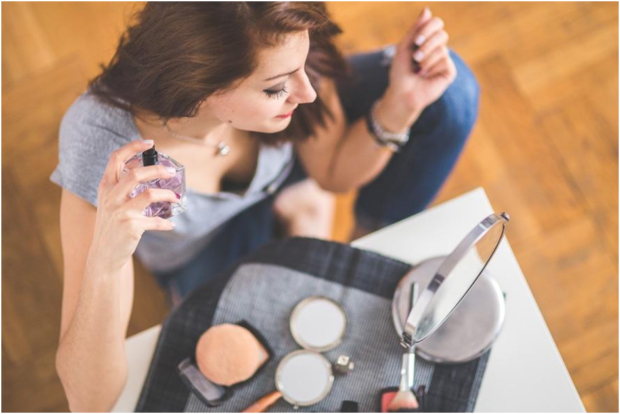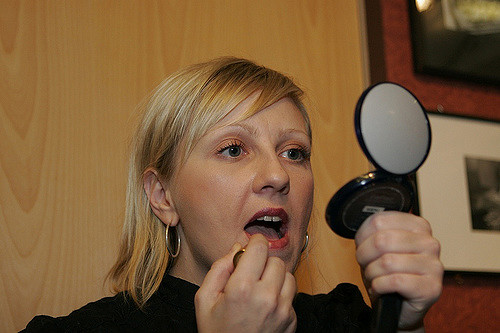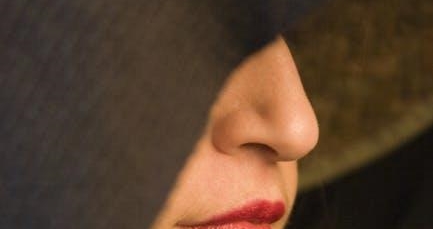Beauty and the Boardroom: Do Women have to Wear Makeup to Rise?

American women spend 55 minutes a day on their appearance and worry more about their appearance than their finances. In our culture, those that identify as women often face suffocating societal pressure to fit into narrow, racist definitions of what qualifies as beautiful. Research verifies that this pressure to be attractive is placed significantly more on women.
Being perceived as a beauty has been shown to have direct ramifications on your career, specifically regarding how much money you will make. In this 2016 study “very attractive” people earned 22% more than people who were only of “average attractiveness.”
Many studies support makeup-wearing as a way to advance your career. One part of what makes women perceived as being physically attractive in our society is makeup. In a 2021 study, women were rated as more attractive with makeup on than without it. Even finding makeup that works is more challenging for women of color as there are fewer makeup options for darker women, signaling back to colorism that lighter skin is perceived as more desirable.

Again, since women who wear makeup are perceived as more attractive in society at large, it makes sense that this extends into the workplace. Research shows that employers expect physically attractive workers to be more skilled and competent. This often leads to the so-called “beauty premium,” a self-fulfilling phenomenon in which physically attractive people tend to get paid more just for being attractive.
So, does wearing makeup benefit your career? Do women have to wear makeup? Like most things, the answer is complex.
Makeup is often most beneficial if it is perceived to increase one’s attractiveness. The layers of complexity involve how much makeup, and is dependent upon one’s occupation. For example, makeup does boost the perception of women as being more attractive and confident. However, wearing heavy makeup may boost perceived attractiveness and confidence, yet at the same time it lowers perceived trustworthiness. So, your role at work matters greatly to the benefits of makeup. For example, if your job relies upon trustworthiness (e.g, doctor, teacher, etc…) then, light and natural makeup is more beneficial to your career.

Red lipstick has prompted studies of its own. For example, you may want to wear red lipstick if you want to have increased attention from heterosexual men. A French study found that waitresses wearing red lipstick received tips 20% more from male customers when wearing red lipstick than when wearing pink, brown or no lipstick. The men were unaware of being influenced and there was no effect on women patrons. Another French study in a bar found that women wearing red lipstick had more men approach them and more quickly for first contact than when no lipstick was used. Yet another research study suggests that using red lipstick may make you look younger. And let’s not forget the whole red nail/red lip theory on Tik Tok, which suggests that wearing red nails, and some claim red lipstick, increases tips in the service industry when heterosexual men are customers.
There is a “yuck” factor in all this in that most of these studies were designed to test and see how makeup affected the heterosexual male gaze. Just because a makeup look may work, does not, nor should not ever mean you have to use it. I do think it is important to be aware of the world as it is so we can advocate for change.

There is a large role that organizational leaders can play in evoking change. Organizations need to stop the policing of narrow gender norms and embrace individual expression so that everyone can express their own version of their authentic professional self. Leaders have an opportunity here to champion women and advocate for their work. Leaders should advocate for an expansion of individual expression within work role contexts, and set an example of valuing work. This is not saying that anything should go at work, but it is advocating for an expansion of narrowed norms regarding how someone looks and a shift to a heavier focus on work performance.
Research indicates that to bring about progress on a cultural level is teaching organizational leadership and management to bring their implicit biases into conscious awareness, change their behavior, and track their progress. This can’t be a one-time training, nor should its focus be limited to just makeup and appearance. The training should be ongoing and include the full range of double standards and implicit biases women and other minorities face in the workplace. It needs to involve structural changes to policies and procedures such as changing hiring practices, providing incentives for improvements, doing stereotype-breaking exercises, and getting rid of self-evaluations in performance reviews since women assess themselves more harshly than men do.
Having and being mentors and/or sponsors is also helpful. Also, if you are a leader (or when you become one), advocate and champion as many different ways as possible that women (and everyone) can look and present themselves in your organization.
For the last three years, I have been interviewing powerful and successful women worldwide. A significant theme that has emerged is the importance of finding an authentic way to be yourself at work, within your role. Then, having the confidence to be that authentic professional person even when it is hard. You cannot do this in isolation, as your role and your organization’s culture need to be considered if you wish to keep the job or rise in that situation. However, there may be situations where your authentic professional self can’t thrive and that may mean leaving a job, an organization or finding a new dream.
Almost all of the hyper-successful women I interviewed said that they would not have been successful if they had not found and nurtured their authentic work self. If they tried to be someone else, they failed.
So, when it comes to makeup at work, the real question to ask is, what makes you feel confident and most like yourself? If you love makeup, rock your red lips, but if a bare face is your speed, then do that with boldness.
In the end, it should be the beauty of your work that truly gets their attention.
This guest post was authored by Dr. Leilani Carver
Dr. Leilani Carver, Director of Graduate Strategic Communication and Leadership and the Director of Undergraduate Communication and an Associate Professor of Strategic Communication and Leadership at Maryville.
NOTE: All of the studies regarding makeup quoted in this article (and all that the author could find) have been heteronormative, and many, though not all, have focused on white women. This doesn’t negate the findings of the studies, but it highlights bias in research and the great need for research with diverse populations. Studies need to be conducted with women of color and include those with differing genders and sexual orientations.
*******
Ms. Career Girl strives to provide valuable insights you can use. To see more from our columnists and guest authors, check these out! Or subscribe to our weekly email featuring our latest articles. We’re also present on Medium!

